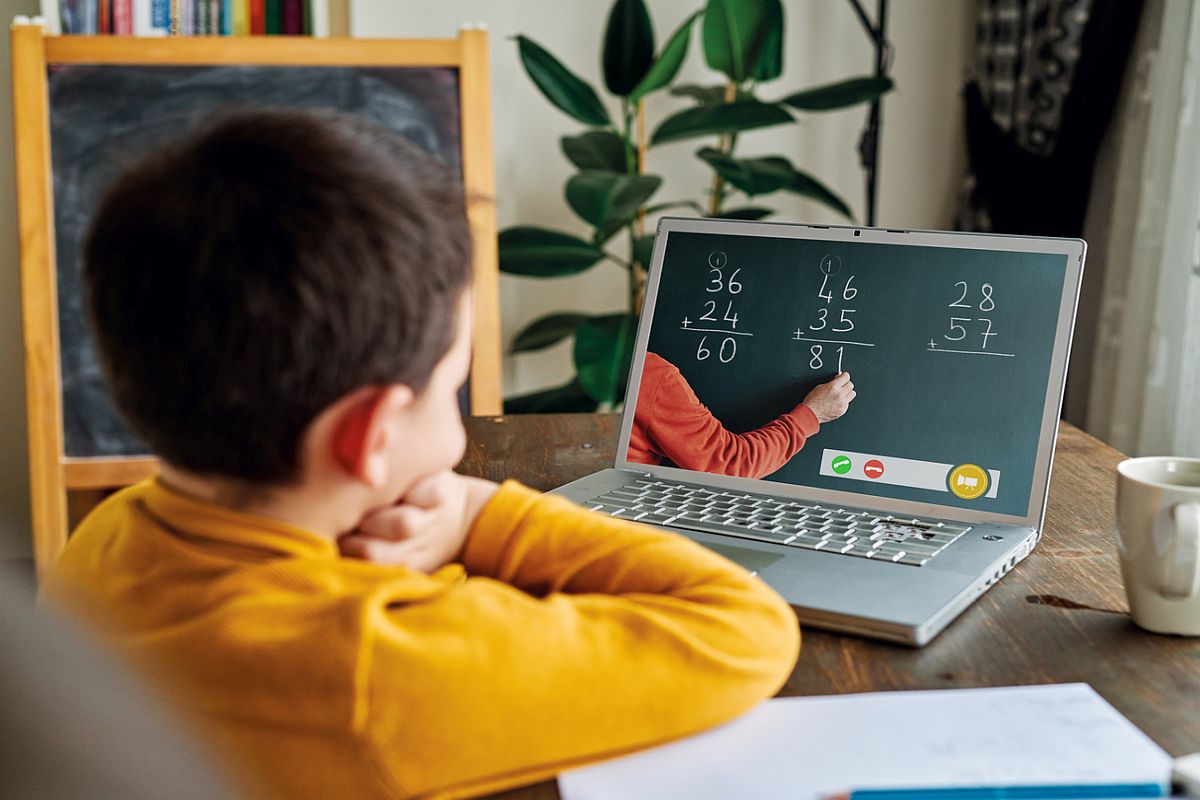After meeting Delhi CM, Gupta says CAG reports likely to be tabled on Feb 25
The first agenda will be tabling the CAG report that are likely be presented on February 25 in the house.
As per the survey, whopping 86% cent of children were missing their classroom for more than one reason and they preferred their classrooms environment more than the online classes.

(Representational image: iStock)
As online classes have become a reality in the Coronavirus infected world, a survey in Delhi and Mumbai shows that 74 per cent of school students find the online classes to be good, but they prefer the classroom study.
As per the survey conducted by New Delhi researcher Suranjana Bhaduri and Mumbai-based researcher Kalpana Bindu, in Mumbai and National Capital Region (NCR) during lockdown in April and May, whopping 86% cent of children were missing their classroom for more than one reason and they preferred their classrooms environment more than the online classes.
Advertisement
Many students said the online class did not fulfill their wish to experience their new classrooms, as many students never got an opportunity to venture into their new classrooms after getting promoted to new classes. Maitreesh Bhaduri, a Class IV student from Delhi quipped “I am in a new class, got my new set of books also, teachers are taking the class every day, but I don’t know where is the new classroom, how does my new classroom look like” .
Advertisement
While 27.18 per cent of children said online classes are boring because they can’t interact with their friends, 46 per cent of them said it is good because through online classes at least they can see their friends. Many school children, however, complained that class hours are too short for them to chat adequately.
More than 80 per cent of children who participated in the survey were attending such online classes organized by their schools and many children took upon it on themselves to look for self-learning through YouTube videos and e-books outside their school mandated initiatives.
Online classes are also a challenge for teachers used to classroom teaching. “In a way online mode is better as we are using technology and it often fascinates children. At the same time, however, we can’t gauge their level of understanding or concentration since face to face interaction is missing,” shared a teacher from a reputed Noida-based public school.
Many teachers are concerned about this lacuna and are making efforts to make up for this deficit by trying to redesign their teaching pedagogy. A senior language teacher in a famous school in South Delhi said, “Online teaching seemed very challenging at first, also awkward since it was completely novel, …. Now on the hindsight I feel, every challenge throws an opportunity to us, so I think it is also a new skill that we educators have acquired …”.
While parents are liking the online classrooms, working parents are finding the online classes challenging as they have to continuously balance their time between ‘working from home’, ‘spending time with the children’, and ‘doing all the household chores themselves’.
Abhay Kumar, Asst Prof, CIET, NCERT, asserts that prolonged closer of the schools may lead to serious disruptions in children’s learning with long term ramification on their behaviour. So many parents see online classes as an opportunity to keep the children engaged in productive affairs. According to many parents, it also keeps the children focused, which otherwise is difficult to maintain when all routines are jeopardized under the lock-down.
Many parents and educationists, at the same time are concerned with the health hazards of enhanced internet hours that such classes might lead to. Dr. Deepika Srivastav, Professor of Clinical Psychology, Amity University, says “too much of internet could pose health risk to children as it can affect their eyesight, concentration levels, ears, lead to additive tendencies and sitting in one posture for a very long time can lead to health concerns”.
This survey revealed on average children, aged between six and 12 years, were spending six to seven hours per day ‘online’, which for some goes up to 9 to 10 hours. On average, this online time is three to four hours more than what they were doing before the lock-down started.
While these concerns have led to a few state governments to ban online classes for pre-primary and primary students in the recent days, the survey’s overall findings, however, hint at the requirement for a more balanced view, which would also take care of the demand for social interactions among the children.
Prof. Srivastav suggests, “Parents can encourage children to engage in in-door games, or other activities like reading” to avoid excessive Internet viewing.
Advertisement